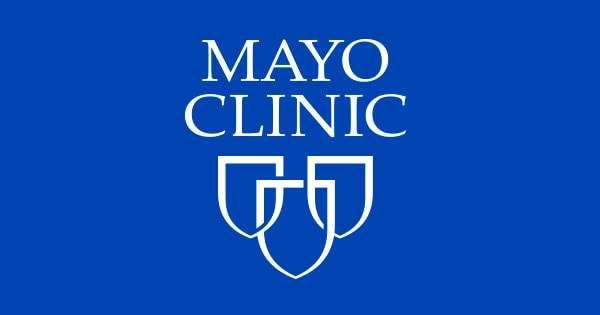Home health physical therapy encompasses a wide range of services that PTs and PTAs provide in the home.
If you practice physical therapy in a home setting, we have resources to support you.
The APTA Home Health Section is specifically dedicated to those who share a common interest in the delivery of physical therapy in the home and other alternative settings within the community.
Home health care can be cost-efficient, convenient, and as effective as the care patients get in a hospital or skilled nursing facility. Home health PTs and PTAs work one-on-one with patients in their own environment, making services completely relevant to the patient’s needs and goals.
What Is a Home Health Physical Therapist Assistant and How to Become One
What Does a Home Health Physical Therapist Assistant Do?
A home health physical therapist assistant (PTA) visits patients at their homes to perform a variety of duties as directed by a physical therapist (PT). As an assistant, you provide direct aid to your patients, such as observing them before, during, and after sessions, providing them with a variety of activities designed to improve their body, taking notes about their progress, and reporting patient progress to the physical therapist. Sometimes the PTA works directly with the PT, while at other times you work independently, only reporting to the therapist when you return to the office. You do not prescribe medicine.
How Can I Become a Home Health Physical Therapist Assistant?
To become a home health physical therapist assistant (PTA), you need to have a number of qualifications, including a degree and certification. All states in the US require PTAs to have an associate’s degree. A PTA degree program should include classroom instruction and practical training. After graduating, you need to pass the Federation of State Boards of Physical Therapy exam. Depending on your employer, you may need to pass a background check as well. An internship during your education can greatly improve your job prospects.
Are Home Health Physical Therapist Assistants in Demand?
There is very strong demand for physical therapist assistants (PTA) in the current economy. According to the Bureau of Labor Statistics, work for PTAs is projected to grow by 31% in the next decade. This demand is due to the aging population in need of physical therapy solutions for a variety of issues, such as diabetes, obesity, and general mobility issues. Growth is projected to be especially strong for PTAs who work at home health facilities or who can travel to a patient’s home or long-term care facility to provide their services.
What Skills Do I Need to Be a Successful Home Health Physical Therapist Assistant?
Important skills for a home health physical therapist assistant (PTA) include patience, empathy, and a willingness to travel. You should have reliable transportation and a good driving record, as your responsibilities revolve entirely around travel. Flexibility is also an important aspect of the job, as you may be traveling at non-traditional working hours in order to accommodate your patients’ schedules. Rehab can take many months, and you should have good interpersonal skills and verbal communication so that you can connect with your patients and make them feel comfortable as you work with them.
This is also known as home care physical therapist. They provide therapy services meant for treatment plans in a residential setup. Employers need you to provide rehabilitation services in the confines of a home. This sort of physical therapy (PT) is usually reserved for patients who can’t leave their houses due to the risk associated with leaving their houses. You are expected to review the patient’s medical histories.
In addition, you are to outline goals clearly for patients and outline the expected outcomes of such a plan. You must learn to use exercises to manage a patient’s pain and increase mobility. Apart from this, you are also responsible for recording the progress of the patient and changing the plan of care if need be. Most importantly, you are to educate both the patient and family members about the recovery process.
Becoming a home health physical therapist requires several education qualifications. More importantly, you must major in physical therapy and bag a bachelor’s degree. Apart from educational qualifications, you must be a compassionate person with the ability to show genuine kindness to people. You must also be detailed-oriented as you have to be extremely observant. The average annual pay in the US is $113,426.
The Home Health Physical Therapist and Physical Therapist Assistant
Many home health physical therapists and physical therapist assistants find it rewarding to help people reclaim their lives and their routines in the places where they live. If you ask a home health PT or PTA, he or she will probably tell you that it can be difficult in the clinic to identify the functional goals and outcomes that will best ensure improvement in the patient’s quality of life. However, when a physical therapist or physical therapist assistant is in the home of someone with a physical impairment, he or she can see right away the kinds of goals that need to be accomplished.
PTs and PTAs who choose to practice in home health often describe themselves as having a greater sense of autonomy, uninterrupted one-on-one time with patients, and deep appreciation from patients and their families.
A patient’s first visit by a home health PT will include an evaluation. He or she will perform an examination to identify current and potential problems. Based on the results of the examination, and considering specific goals, the physical therapist will design a plan of care to include specific interventions and will propose a timetable to achieve these goals and optimize function. The physical therapist will likely provide the patient with instructions to perform exercises to facilitate recovery.
A Closer Look at Home Health Physical Therapy
Home health care is the provision of skilled therapy services in the patient’s place of residence. While the majority of patients are senior citizens, there also are pediatric patients with developmental disabilities and other conditions, and individuals of all ages in between who need rehabilitation because of injury or other causes. Home care may actually be provided in the patient’s residence, the caregiver’s home, a hospital emergency room, skilled nursing facility, residential facility, group home, hospice, or elsewhere in the community.
The following are health conditions commonly seen in home health:
-
Total joint replacements
-
Fractures
-
CVA
-
Progressive neurological conditions
-
Fall risk
-
Dementia
-
Chronic pain
-
Incontinence
-
Wounds
-
COPD
-
Heart Failure
Skills used by a physical therapist in home health include:
-
Gait training
-
Transfer training
-
Home exercise program development
-
Home exit management
-
Fall prevention
-
Progressive resistive exercises
-
Pain management
-
Incontinence treatment
-
Wound care
-
Neuropathy treatment
A greater Detroit-area physical therapist assistant – who was also an owner of a home health agency and a patient recruiter – pleaded guilty today for his role in a $22 million home health care fraud scheme.
Acting Assistant Attorney General Mythili Raman of the Justice Department’s Criminal Division; U.S. Attorney Barbara L. McQuade of the Eastern District of Michigan; Special Agent in Charge Robert D. Foley III of the FBI’s Detroit Field Office; and Special Agent in Charge Lamont Pugh III of the Chicago Regional Office of the U.S. Department of Health and Human Services’s Office of Inspector General (HHS-OIG) made the announcement.
Syed Shah, 51, of West Bloomfield, Mich., pleaded guilty before U.S. District Judge Bernard A. Friedman in the Eastern District of Michigan to one count of conspiracy to commit health care fraud. At sentencing, scheduled for Nov. 19, 2013, Shah faces a maximum penalty of 10 years in prison.
According to information contained in plea documents, Shah, a licensed physical therapist assistant, admitted that beginning in or around October 2008 and continuing through approximately September 2012, he conspired with others to commit health care fraud by billing Medicare for home health care services that were not actually rendered and/or not medically necessary. Shah admitted that he began working in approximately October 2008 for Prestige Home Health Services, Inc., a home health agency located in Troy, Mich., owned by alleged co-conspirators. His co-conspirators at Prestige paid him kickbacks in exchange for his obtaining the information of Medicare beneficiaries, which the co-conspirators then used to bill Medicare for services that were not provided and/or were not medically necessary. Shah and his co-conspirators then created fictitious therapy files appearing to document physical therapy services provided to Medicare beneficiaries, when in fact no such services had been provided and/or were not medically necessary. Shah admitted that his role in creating the fictitious therapy files was to sign documents and progress notes indicating he had provided physical therapy services to particular Medicare beneficiaries, when in fact he had not. Shah admitted to knowing that the documents he falsified were used to support false claims billed to Medicare by his co-conspirators at Prestige.
In his plea, Shah also acknowledged that in approximately August 2009, he became an owner of Royal Home Health Care, Inc., a home health agency located in Troy, Mich., along with other co-conspirators. He and his co-conspirators at Royal billed Medicare for home health visits that never occurred and were not medically necessary. Shah and his co-conspirators paid kickbacks to Shah and other patient recruiters in exchange for Medicare beneficiary information, which was then used to bill Medicare for services that were not provided and/or were not medically necessary. Shah admitted that he and his co-conspirators created fictitious therapy files, reflecting services that had not been provided and/or were not medically necessary. He knew the documents he falsified would be used to support false claims by Royal to Medicare for home health services.
Shah submitted or caused the submission of claims to Medicare for services that were not medically necessary and/or not provided, which in turn caused Medicare to pay approximately $5,925,843. According to the indictment, two additional home health agencies were involved in the alleged conspiracy. In total, the four home health agencies at the center of the indictment received more than $22 million from the Medicare program.
This case was investigated by the FBI, HHS-OIG and IRS Criminal Investigation, brought as part of the Medicare Fraud Strike Force, and supervised by the Criminal Division’s Fraud Section and the U.S. Attorney’s Office for the Eastern District of Michigan. It is being prosecuted by Trial Attorney Niall M. O’Donnell of the Criminal Division’s Fraud Section.
Since its inception in March 2007, the Medicare Fraud Strike Force, now operating in nine cities across the country, has charged more than 1,500 defendants who have collectively billed the Medicare program for more than $5 billion. In addition, HHS’s Centers for Medicare & Medicaid Services, working in conjunction with HHS-OIG, is taking steps to increase accountability and decrease the presence of fraudulent providers.
To learn more about the Health Care Fraud Prevention and Enforcement Action Team (HEAT), go to: www.stopmedicarefraud.gov.



